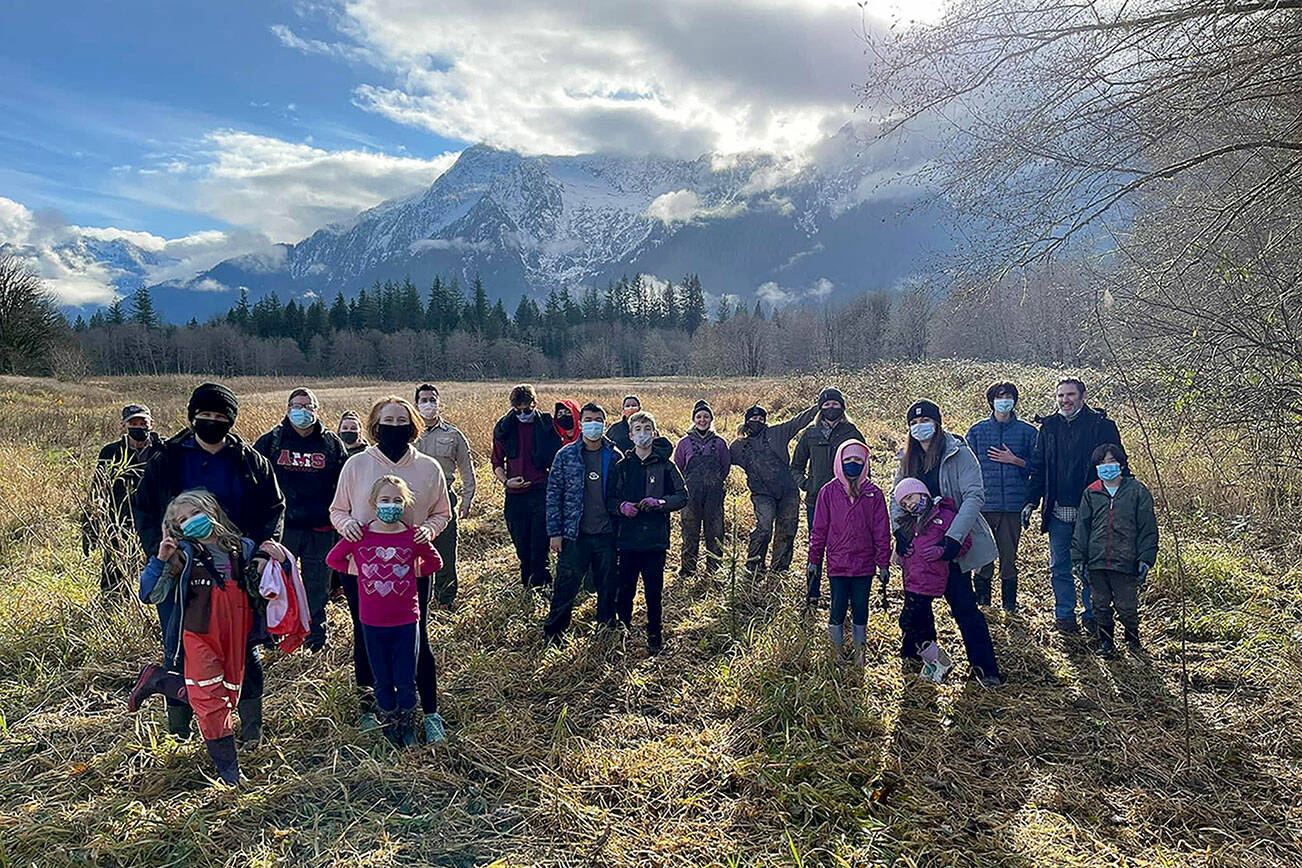Every year before the holidays, Sound Salmon Solutions gets one big special delivery: 80,000 coho salmon eggs, courtesy of the state-run hatchery in Issaquah.
High school students eagerly await the arrival at the local nonprofit’s Willow Creek education center, where each egg is washed in iodine and placed in an incubation tray.
Five months later, once the juvenile salmon grow to fingerling size, they are released into streams in Bothell and Lynnwood.
The yearly process speaks to Sound Salmon Solutions’ core mission: supporting salmon recovery by encouraging people to make a personal connection with the rivers and streams that make up their local watershed.
This December, some school classrooms in Edmonds, Marysville and Arlington will also get 300 of the eggs, a 55-gallon tank and a shot at raising the fish for their first few months.
“They get to actually watch and be part of the salmon rearing and then release them into the pond,” said Maddie Dineen, education program manager for the Mukilteo-based nonprofit. “It’s very hands-on and incredibly impactful. It’s a long-lasting impact.”
Sound Salmon Solutions is one of 14 regional fisheries coalitions in Washington state. Its service area covers the Stillaguamish and Snohomish watersheds, plus part of Whidbey Island.
Thirty years after the organization’s founding, its educators are teaching kids whose parents participated in its first school programs in the 1990s.
“It’s vital that kids start to learn about the place that they live in, and love the place that they live in, so that when they get older they’re inspired to care for their environment,” Dineen said. “We want to show them that it’s their environment, it’s their world.”
The work is more critical now than ever, as salmon populations are struggling to keep up amid warming water temperatures and expanding human development.
Nearly 60 species of Chinook salmon, steelhead and bull trout live in the Puget Sound. All of them are listed under the Endangered Species Act, and none of them are close to recovery, according to the 2020 State of Salmon in Watersheds report by the Washington State Recreation and Conservation Office.
Salmon are especially important fish, not only to many Native American tribes and the seafood industry, but also in ecological terms.
“From start to end, beginning of life to end of life, every single stage of the salmon’s life is vital to the ecosystem, the food web, and the protection of the environment that they live in,” Dineen explained.
In addition to offering education programs, Sound Salmon Solutions also restores salmon habitat by planting trees along the banks of rivers and streams at project sites as far east as Darrington and as far south as Carnation.
Those waterside spaces could otherwise fall victim to invasive species, such as Himalayan blackberry and Japanese knotweed, that steal resources from native plants and make the riparian zone less suitable for salmon, according to Habitat Program Manager Kyle Koch.
But, thanks to Sound Salmon Solutions and its volunteers, the added conifers provide shade that keeps the water cool, as the fish prefer. The trees’ roots also hold sediment, preventing it from clouding the water and making it harder for the fish to breathe.
The nonprofit has an annual budget of roughly $900,000, mostly government grants, and a staff of 11 people. In an average year, another 850 to 950 volunteer, said Lisa Syravong, who manages the organization’s stewardship program.
At its largest volunteer events, including one every January for Martin Luther King Jr. Day, it’s not uncommon for almost 1,000 trees to be planted in just hours, Syravong said.
“People are busy. We all lead busy lives,” she said. “But if we provide easy opportunities for people to get involved for two or four hours a month, or even once a year for four hours, it gives them the opportunity to give back to the community, and to be a bigger part of salmon restoration. Which is really how we’re really going to make a difference in the future for increasing our salmon population.”
To donate, visit SoundSalmonSolutions.org.



